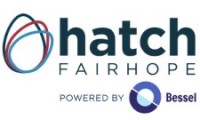-
【EXPERT Q&A】What is the basic process of Class II medical device registration certificate application?
- Source: drugdu
- 455
- April 8, 2024
-
FCE Pharma 2024
- Source: drugdu
- 577
- April 8, 2024
-
Profound Medical, Siemens Healthineers collab on ultrasound ablation
- Source: drugdu
- 321
- April 7, 2024
-
Bessel launches accelerator program for medtech startups
- Source: drugdu
- 518
- April 7, 2024
-
Cambridge researchers begin new trial for oesophageal cancer screening
- Source: drugdu
- 318
- April 7, 2024
-
Kanabo and City Dock Pharmacy team up
- Source: drugdu
- 417
- April 7, 2024
-
CellVoyant secures £7.6 million AI stem cell boost
- Source: drugdu
- 405
- April 7, 2024
-
Aston University receives £10m for membrane institute
- Source: drugdu
- 359
- April 7, 2024
-
Disco tunes into new cancer drug targets
- Source: drugdu
- 416
- April 7, 2024
-
Poolbeg’s cytokine release syndrome drug shows potential
- Source: drugdu
- 357
- April 7, 2024
your submission has already been received.
OK
Subscribe
Please enter a valid Email address!
Submit
The most relevant industry news & insight will be sent to you every two weeks.

















